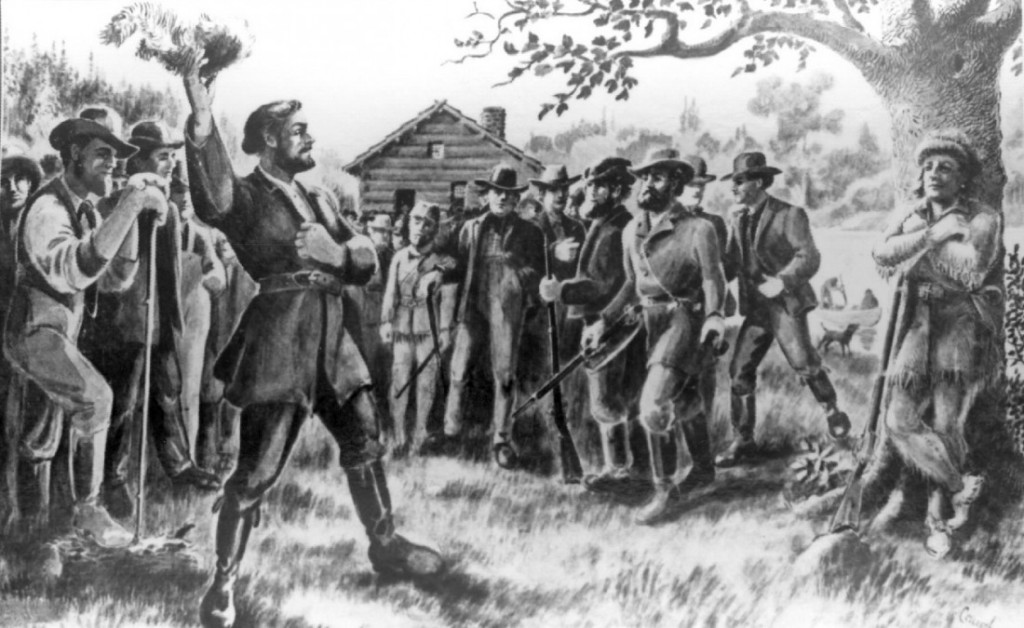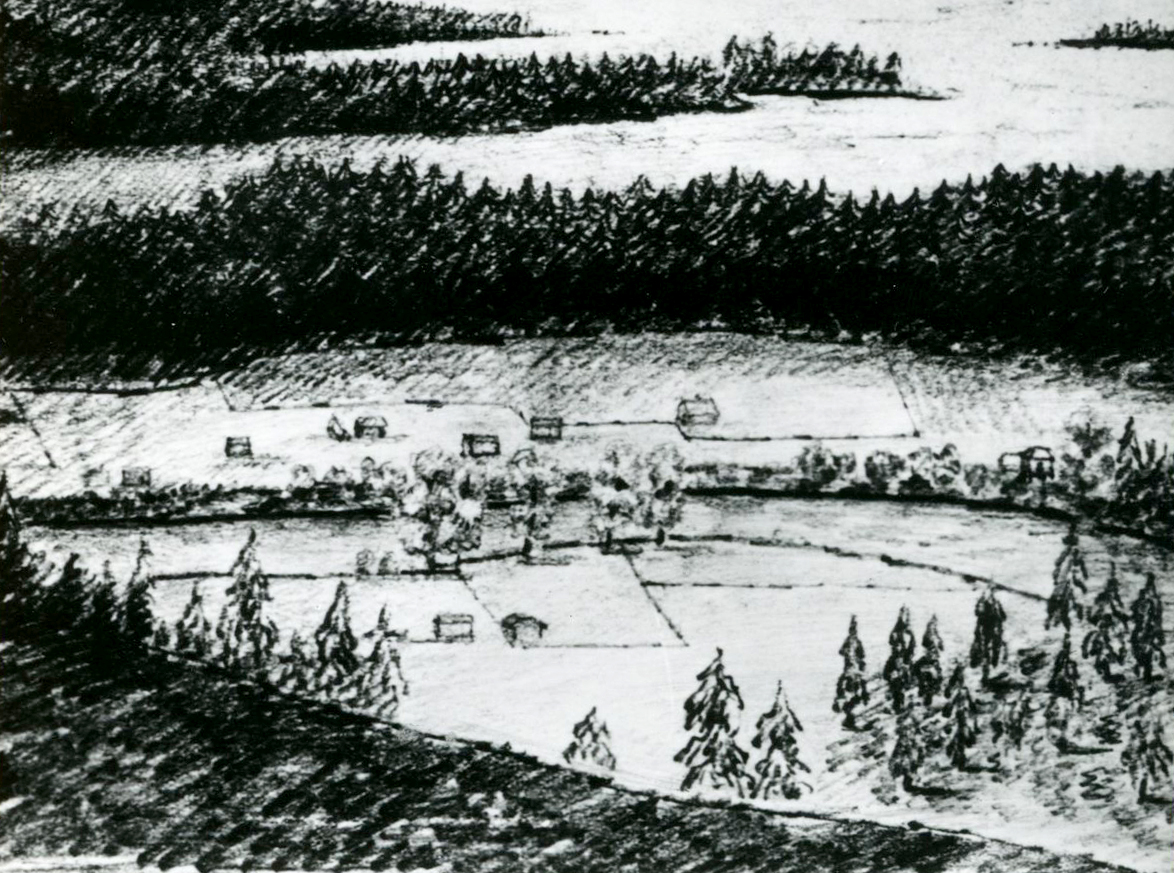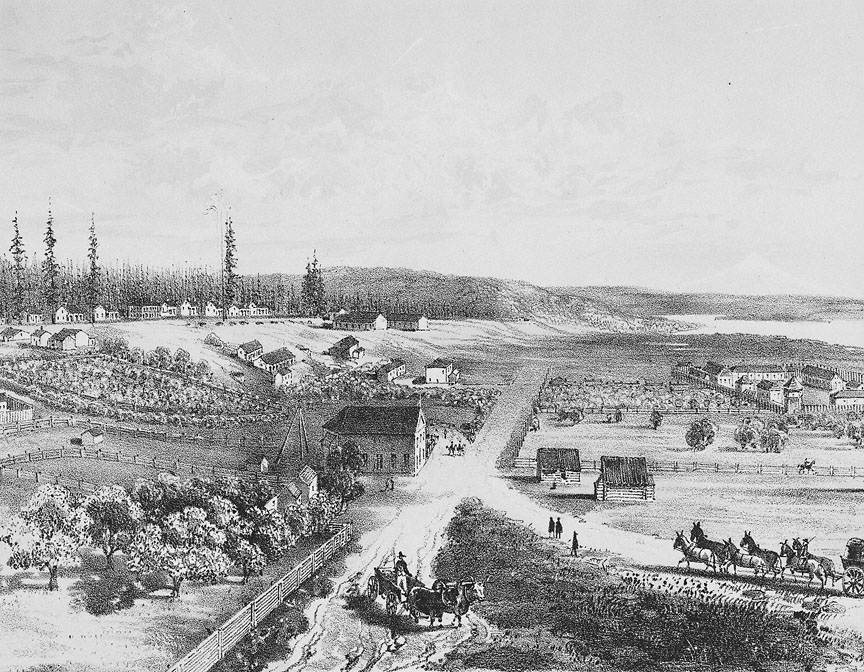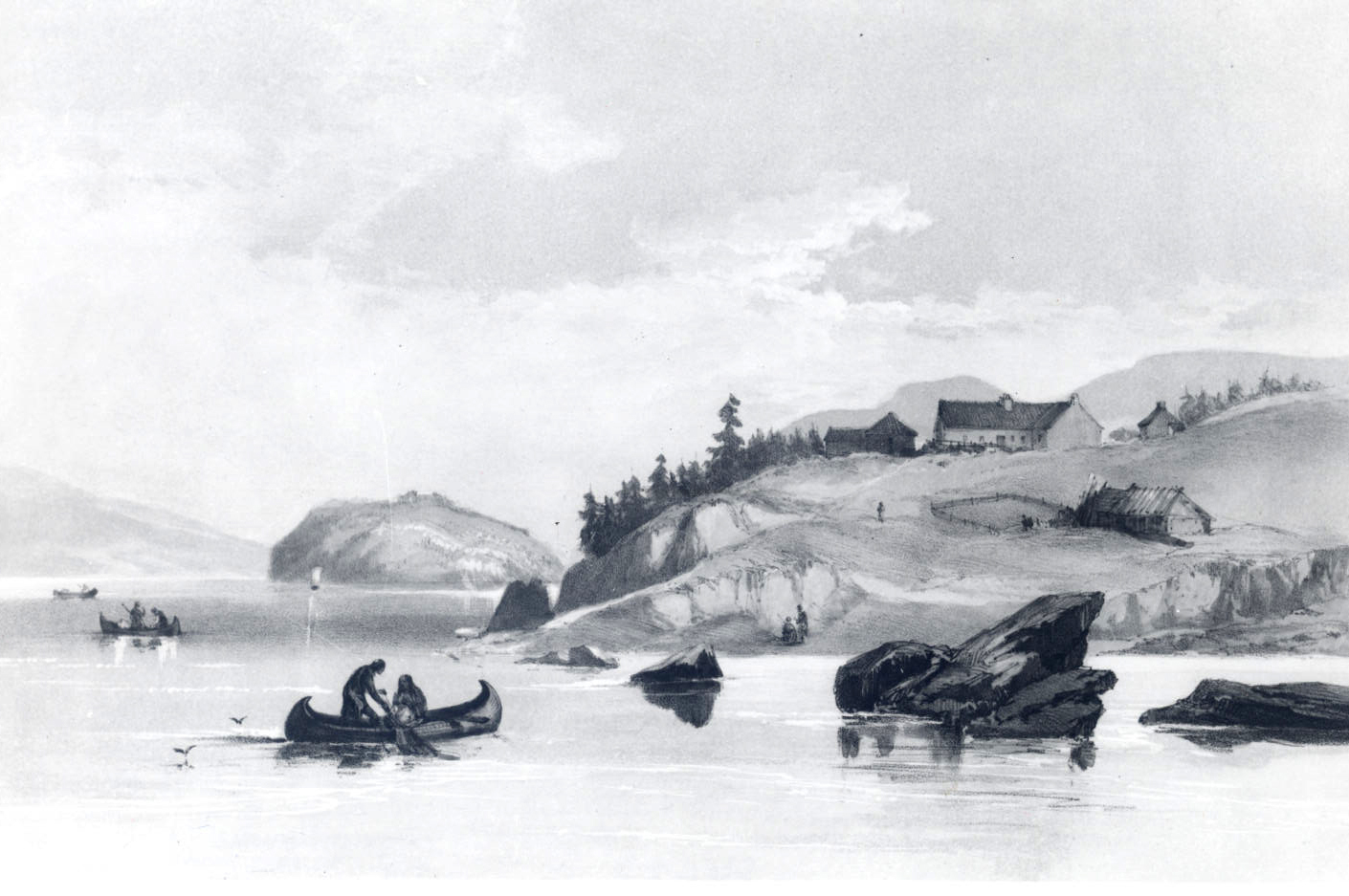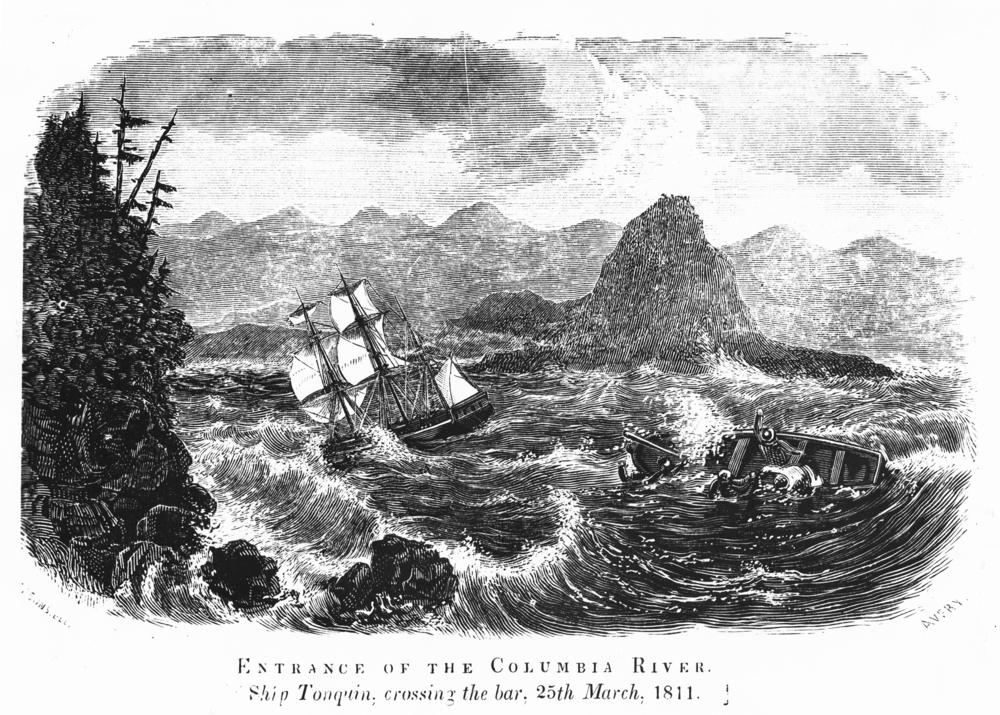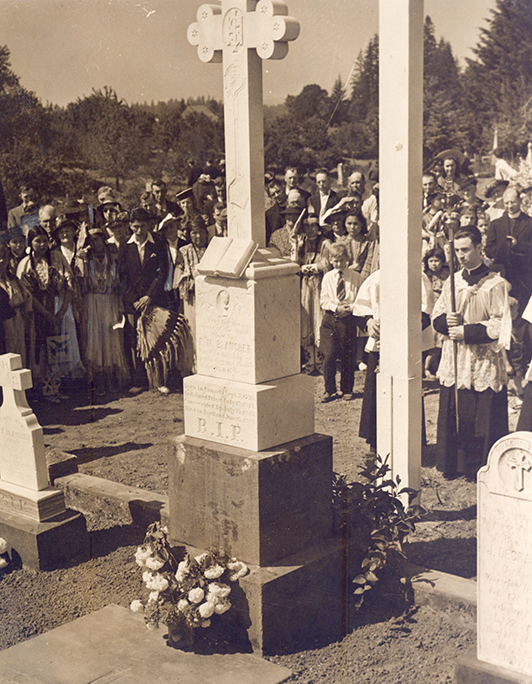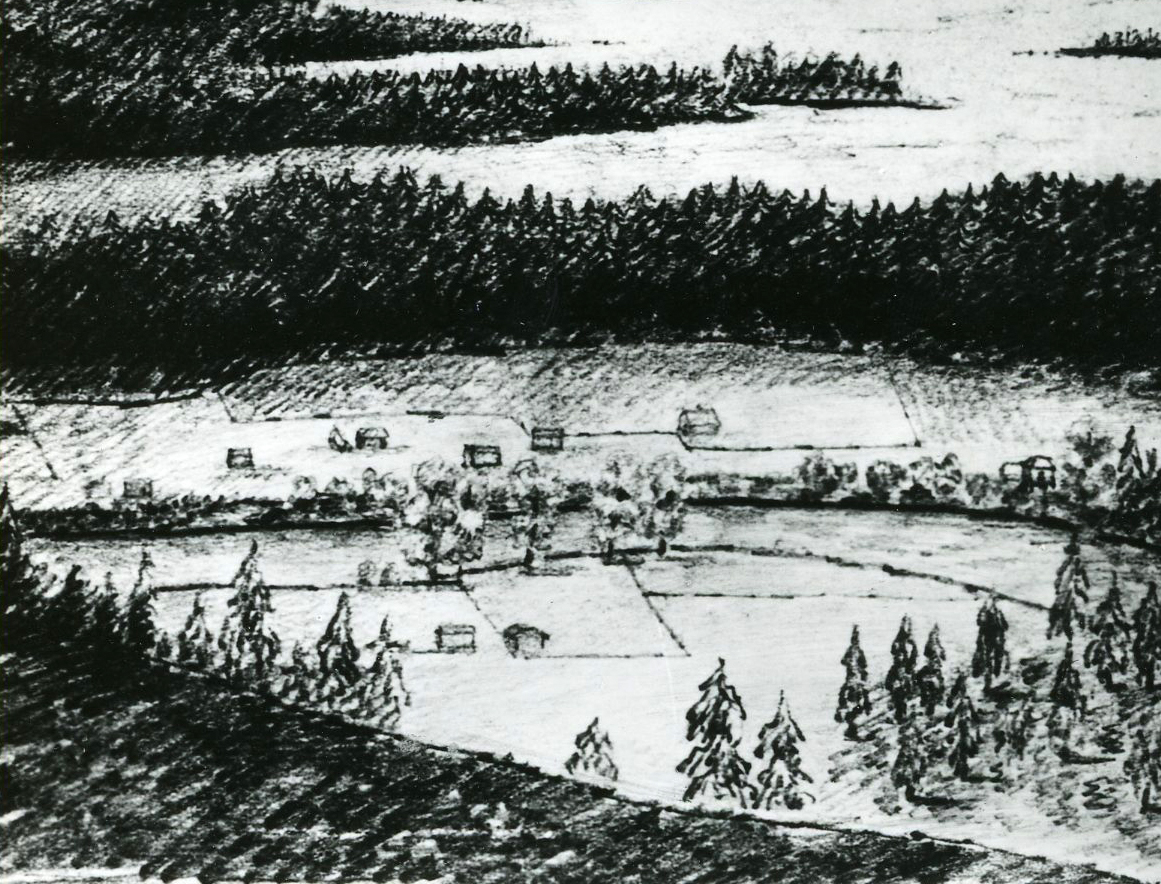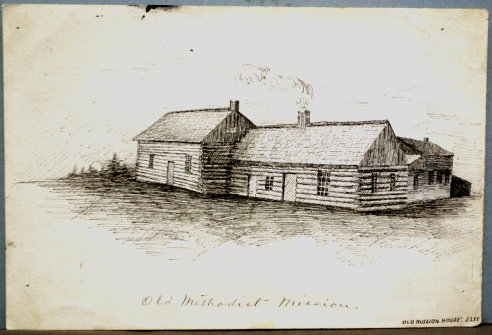Joseph Gervais was a prominent French Canadian settler in the Willamette Valley. He was one of the small number of French Canadians who voted for the American-led effort to organize a provisional government in Oregon in 1843. The town of Gervais is named for him, though the present site is not located on his original land claim; rather, the town sits on land once owned by French Canadian settler and former HBC voyageur Pierre Depot.
Gervais was a native of Maskinonge, Lower Canada (Quebec). In the summer of 1810, while at Michilimackinac (Michigan), Gervais joined the Pacific Fur Company and journeyed overland to Oregon with the Wilson Price Hunt-Donald McKenzie party. He spent some twenty years working as a fur trapper for the Pacific Fur Company, the North West Company, and the Hudson's Bay Company.
In the early 1830s, Gervais and his second wife, Yiamust (Marguerite) Coboway, settled permanently in the area of the Willamette Valley that came to be known as French Prairie. He and his family—along with the French-Indian families of Pierre Bellique, Etienne Lucier, and Jean Baptiste Desportes McKay—were the first non-Kalapuyans to live year-round in the valley above Willamette Falls.
During the 1830s, Gervais family members were supporters of Jason Lee's Methodist mission, located just south of the Gervais farmstead, and they allowed the missionaries to hold services at their home. Joseph Gervais later supported the efforts of the French-Indian community to secure a French Canadian Catholic mission to Oregon.
In 1843, following the arrival of increasing numbers of American settlers into the region, Gervais joined his longtime colleague Etienne Lucier in voting for the organization of a provisional government as a means of securing the French Canadians a future voice in community affairs. The French Canadian settlers in French Prairie maintained some influence in the provisional government from 1843 to 1849. By the time the territorial government was formed in 1850, their influence had waned following the influx of thousands of educated Anglo-American overlanders into the Willamatte Valley.
Not unlike a number of French Canadian settlers, Gervais eventually lost his farm to debt in the 1850s. Gervais's second wife, Yiamust, had died at St. Paul in 1840; his third wife was Marie Angelique Chinook. When he died in 1861, he was living at the home of David Mongraine and Catherine Lafantasie in French Prairie. Gervais was buried in the Old Cemetery at St. Paul.
-
![]()
"Joe Meek Appeals for the American Flag, at Champoeg, May 2, 1843." Illustration by Caughey..
Courtesy Willamette Heritage Center Collections, 2004.010.0824
Related Entries
-
![Etienne Lucier (1793-1853)]()
Etienne Lucier (1793-1853)
Etienne Lucier, one of the first French Canadians to settle in the mid-…
-
![French Prairie]()
French Prairie
Located in Oregon's mid-Willamette Valley, French Prairie was resettled…
-
![Hudson's Bay Company]()
Hudson's Bay Company
Although a late arrival to the Oregon Country fur trade, for nearly two…
-
![North West Company]()
North West Company
First organized in 1779 by a small group of Canadian fur traders based …
-
![Pacific Fur Company]()
Pacific Fur Company
The Pacific Fur Company, employee Alexander Ross wrote in 1849, was “an…
-
![Provisional Government]()
Provisional Government
The Provisional Government, created in May-July 1843, was the first gov…
-
![St. Paul Cemetery]()
St. Paul Cemetery
The town of St. Paul, established in 1839, was the first Catholic missi…
-
![Voyageurs]()
Voyageurs
In the history of the North American fur trade, only the mountain man r…
-
![Willamette Mission]()
Willamette Mission
Willamette Mission was the first noncommercial agricultural community e…
Map This on the Oregon History WayFinder
The Oregon History Wayfinder is an interactive map that identifies significant places, people, and events in Oregon history.
Further Reading
Barry, J. Neilson. The French Canadian Pioneers of the Willamette Valley. Portland: Oregon Sentinel Press, 1933.
Hussey, John A. Champoeg: Place of Transition, A Disputed History. Portland: Oregon Historical Society/Oregon State Highway Commission, 1967.
Jetté, Melinda Marie. "'we have allmost Every Religion but our own': French-Indian Community Initiatives and Social Relations in French Prairie, Oregon, 1834-1837." Oregon Historical Quarterly 108:2 (Summer 2007): 222-45.

